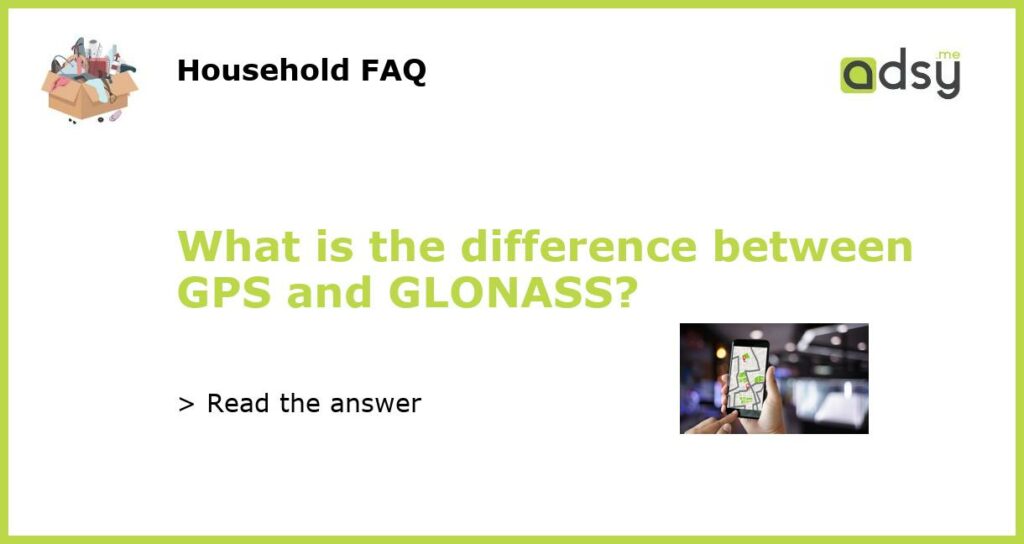The Difference Between GPS and GLONASS Explained
GPS and GLONASS are both satellite navigation systems used to determine location and provide navigation services. However, there are some key differences between the two. In this article, we will explore what GPS and GLONASS are, how they work, and the main differences between them.
What is GPS?
GPS (Global Positioning System) is a satellite navigation system owned and operated by the United States government. It was initially developed for military use but is now widely used by civilians for navigation purposes. GPS consists of a network of satellites that orbit Earth and a network of ground control stations that monitor and maintain the system.
What is GLONASS?
GLONASS (Global Navigation Satellite System) is a satellite navigation system owned and operated by the Russian Federation. It was also initially developed for military use but is now used by civilians as well. GLONASS consists of a network of satellites that orbit Earth and a network of ground control stations that monitor and maintain the system.
How do GPS and GLONASS work?
Both GPS and GLONASS work by transmitting signals from satellites to GPS/GLONASS receivers on the ground. The signals carry information about the location of the satellite and the time the signal was sent. By measuring the time it takes for the signal to travel from the satellite to the receiver, the GPS/GLONASS receiver can determine its distance from the satellite. By receiving signals from multiple satellites, the GPS/GLONASS receiver can calculate its precise location on Earth.
What are the main differences between GPS and GLONASS?
One of the main differences between GPS and GLONASS is the number of satellites in each system. GPS currently has 31 operational satellites, while GLONASS has 24 operational satellites. This means that GPS has a larger satellite constellation and can provide more accurate positioning in some cases.
Another difference is the location of the satellites in orbit. GPS satellites orbit in six planes, while GLONASS satellites orbit in three planes. This means that GPS is better suited for providing accurate positioning in higher latitudes, while GLONASS is better suited for lower latitudes.
Finally, GPS uses a different signal frequency than GLONASS. GPS uses L1 and L2 frequencies, while GLONASS uses L1 and L2 frequencies as well as L3 frequency. This means that GPS is more susceptible to signal interference than GLONASS, but it also means that GPS is more compatible with other satellite navigation systems like Galileo and BeiDou.






